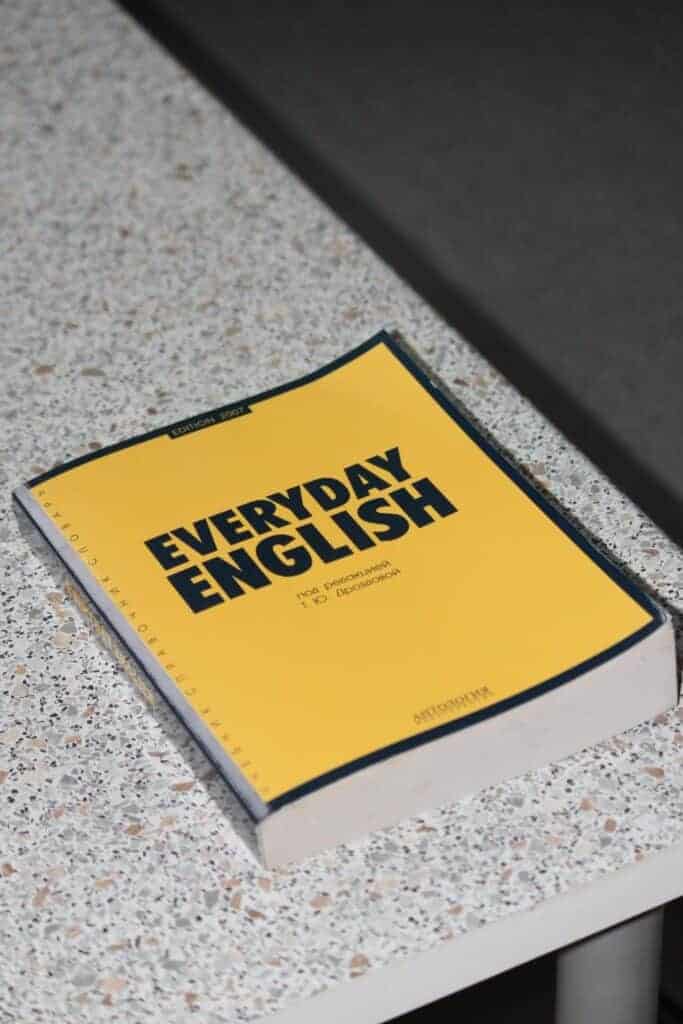This comprehensive guide to Job Hunting In Japan For Foreigners provides valuable insights and practical tips to help you land your dream job in Japan.
Embarking on a job search in Japan as a foreigner presents unique challenges and opportunities. This guide delves into the intricacies of the Japanese employment landscape, equipping you with the knowledge and strategies to excel in your quest for professional fulfillment.
Page Contents
How To Find Jobs In Japan For Foreigners?
Getting a job in Japan as a foreigner can be a challenging but rewarding experience. Here’s a breakdown of the key steps involved:
Preparation:
- Visa: You’ll need a valid work visa to legally work in Japan. The specific visa type depends on your situation, but the most common types for foreigners include the Highly Skilled Professional Visa, the Basic Working Visa, and the Job Seeker Visa. Each has its own requirements, so research thoroughly.
- Japanese Language: While not always mandatory, proficiency in Japanese is highly advantageous. Employers often look for a minimum level, usually measured by the Japanese Language Proficiency Test (JLPT). Consider taking language courses or studying independently.
- Qualifications: Depending on the job, you may need a university degree, relevant work experience, or specific certifications. Research the requirements for your desired field.
- Resume and Cover Letter: Tailor your resume and cover letter to the Japanese job market, highlighting relevant skills and experience. Use a professional format and get feedback from native speakers if possible.

Job Search:
- Job Boards: Utilize online job boards like Indeed Japan, GaijinPot, and JobsInJapan. Look for English-friendly listings or translate job descriptions using tools like Google Translate.
- Recruiting Agencies: Consider partnering with recruiting agencies specializing in placing foreigners in Japan. They can provide guidance and connect you with suitable opportunities.
- Networking: Attend industry events, connect with professionals on LinkedIn, and join online communities to build your network and gain insights into the job market.
Interviewing:
- Research: Learn about the company culture, interview etiquette, and typical interview questions. Prepare answers in advance and practice using mock interviews.
- Dress Professionally: Dress conservatively and formally for interviews, respecting Japanese business attire.
- Be Polite and Respectful: Demonstrate respect for the interviewer and company throughout the process. Bowing, using polite language, and arriving early are essential.
What Kind Of Jobs Are Available For Foreigners in Japan?
There are many different types of jobs available for foreigners in Japan, depending on their skills, experience, and Japanese language proficiency. Here are some of the most common job categories:
English Teaching Jobs in Japan for Foreigners
There are two main types of English teaching jobs in Japan:
- Assistant Language Teacher (ALT) positions: ALT positions are typically found in public schools, and ALTs work alongside Japanese teachers to assist with English language instruction. ALTs typically have a bachelor’s degree and a TEFL or CELTA certification, but they do not need to be fluent in Japanese.
- Private language school teacher positions: Private language schools offer English classes to students of all ages, from children to adults. Private language school teachers typically have a bachelor’s degree and a TEFL or CELTA certification, and they may also need to be fluent in Japanese.
Qualifications for English Teaching Jobs in Japan
The specific qualifications for English teaching jobs in Japan vary depending on the type of position and the school or organization. However, some general qualifications include:
- Native or near-native English speaker: Fluency in English is essential for all English teaching jobs in Japan.
- Bachelor’s degree: A bachelor’s degree is typically required for all English teaching jobs in Japan.
- TEFL or CELTA certification: A TEFL or CELTA certification is a qualification that demonstrates your ability to teach English as a foreign language.
- Teaching experience: Teaching experience is often preferred, but not always required.
Benefits of English Teaching Jobs in Japan
There are many benefits to teaching English in Japan, including:
- The opportunity to live and work in Japan: Japan is a beautiful and culturally rich country, and it is a great place to live and work.
- The chance to make a difference in the lives of your students: Teaching English can be a very rewarding experience, as you can help your students learn a new language and open up new opportunities for themselves.
- Competitive salary and benefits: English teachers in Japan typically earn a competitive salary and benefits package.
Translation and Interpreting Jobs in Japan for Foreigners
Translation and interpreting are essential services in Japan, as the country has a long history of international trade and cultural exchange. There is a strong demand for translators and interpreters who can bridge the language gap between Japanese and foreign businesses and individuals.
Types of Translation and Interpreting Jobs in Japan
There are two main types of translation and interpreting jobs in Japan:
- Translation: Translation involves converting written text from one language to another. Translators can work in a variety of fields, including business, finance, law, and medicine.
- Interpreting: Interpreting involves converting spoken language from one language to another. Interpreters can work in a variety of settings, including business meetings, conferences, courtrooms, and hospitals.
Hospitality and Tourism Jobs in Japan for Foreigners
Japan’s hospitality and tourism industries have grown rapidly in recent years, and there is a strong demand for workers in these fields. Hospitality and tourism jobs are available in a variety of settings, including hotels, restaurants, travel agencies, tour companies, and tourist attractions.
Types of Hospitality and Tourism Jobs in Japan
There are many different types of hospitality and tourism jobs available in Japan, depending on your skills, experience, and Japanese language proficiency. Here are some of the most common job categories:
- Hotel staff: Hotel staff work in a variety of departments, including front desk, housekeeping, food and beverage, and concierge.
- Restaurant staff: Restaurant staff work in a variety of positions, including server, bartender, cook, and dishwasher.
- Travel agency staff: Travel agency staff help customers plan and book travel arrangements.
- Tour guides: Tour guides lead tours of Japan for visitors from other countries.
- Tourist attraction staff: Tourist attraction staff work in a variety of roles, such as ticket sales, information desk, and security.
Qualifications for Hospitality and Tourism Jobs in Japan
The specific qualifications for hospitality and tourism jobs in Japan vary depending on the type of position and the employer. However, some general qualifications include:
- Japanese language proficiency: Japanese language proficiency is often required for hospitality and tourism jobs in Japan, especially for positions that involve interacting with customers.
- Customer service skills: Customer service skills are essential for all hospitality and tourism jobs.
- Communication skills: Communication skills are important for all hospitality and tourism jobs, as you will need to be able to communicate effectively with customers, colleagues, and supervisors.
- Ability to work in a fast-paced environment: Hospitality and tourism jobs can be fast-paced and demanding, so you need to be able to work well under pressure.
Check Job Hunting Sites in Japan
You’ll find a few job hunting sites in Japan that are meant for English speakers candidates as well. Here are some job hunting sites in Japan that are meant for foreigners.
Daijob.com
One feature that really stood out to me on this website is that you can apply for a job at a Japanese company in a foreign country. For example, you may find a job a small Japanese company that opened a branch in the US or UK.
WeXpats Jobs
The best thing about WeXpats Jobs is that even if you’re not sure what type of job you want or not sure of the process, a consultant from the website will help out. Also, you can use this language in 11 different languages.
YOLO Japan
YOLO Japan is one of the most popular job hunting sites in Japan. This is an amazing website for foreigners in Japan to be in. It will also help you get a SIM card in Japan, rental property, medical assistance.
GaijinPotJobs
Yes, GaijinPotJobs is a reputable and popular job board for finding jobs in Japan. It has a wide variety of listings, including both full-time and part-time positions, as well as jobs that do not require Japanese language skills.
In addition to its job listings, GaijinPotJobs also offers a number of other resources for job seekers, such as career advice, interview tips, and information about living and working in Japan.
Career Engine
Career Engine is a reputable job board for finding jobs in Japan. It is a bilingual website that caters to both English and Japanese-speaking professionals. It has a wide variety of listings, including both full-time and part-time positions, as well as jobs that require different levels of Japanese language proficiency.
In addition to its job listings, Career Engine also offers a number of other resources for job seekers, such as career advice, interview tips, and information about living and working in Japan.
MyNavi (Japanese)
MyNavi is a popular and reputable job board for finding jobs in Japan. It is one of the largest job boards in Japan, with over 7,000 companies listed on the site. MyNavi has a wide variety of job listings, including both full-time and part-time positions, as well as jobs in a wide range of industries.
Indeed (Japanese)
Yes, Indeed (Japanese) is a reputable and popular job board for finding jobs in Japan. It is one of the largest job boards in the world, with over 250 million unique visitors per month.
Indeed Japan has a wide variety of job listings, including both full-time and part-time positions, as well as jobs in a wide range of industries.
You Need More Than Multilingual Skills To Get A Job In Japan
One of the first things you should know about job hunting in Japan is that knowing Japanese is not enough.
Most countries today appreciate your language skills, especially if you are bilingual and multilingual, with a great fluency in English.
While this is true even in Japan, do remember that there are plenty of multilingual people like you with a good command over English as well as Japanese.

Multilingual skills can definitely look good on your resume and will work very well if you’re looking for a job as an English Language Teacher. But, along with that, do work on other skills as well which is apt for the job you’re applying.
For example, do a certification in adult teaching or a course in effective lesson planning, in addition to your main teaching diploma.
If you’re applying for a job in software or technology, the same applies. Build your qualification by taking on a short term course that will equip you to do the job you are applying for.
Master “Business Level Japanese”
…Or Business Level English. The next one on this list of things you should know about job hunting in Japan is that you need to master business level Japanese and/or English.
Japan, like most developed and developing countries, wants people who are not just bilingual, but those who can read and converse in the language as though it is their native tongue.

If you’re a foreigner, you probably took a few courses in Japanese and can understand most of the language. However, this is not enough as many companies specify that they want JLPT2 or JLPT1 level employees only.
It’s the same thing for English as well. If you’re Japanese and you are applying for jobs at multinational or international corporations, make sure that you hone your language skills.
Practice, learn and practice again until you master the accent, nuances of the language and can blow your interviewer away!
Give Interviews At Smaller Japanese Companies
The next of the things you should know about job hunting in Japan is that it’s best to choose a startup.
I know that joining that big firm with the swanky office downtown might be the dream, but if you are new to the country, that dream might be just a tad bit away for now.

Japanese recruiters have the habit of hiring their own, someone who has lived in their country for a long time, simply because they believe that such employees understand the Japanese culture and will fit in better.
But, fret not, it’s not the end of your dream. Lots of new startups are budding everywhere in Japan, with many millennials and young people building companies from scratch.
They are looking for talent, creativity and diverse skills, something which you can offer with a fresh perspective. Apply for these jobs as you can connect with the recruiters easily.
These jobs can also be a stepping stone to that huge office in a couple of years once you have built your experience.
Look For Jobs In Niche Japanese Job Portals
Many companies, especially the newer ones and startups advertise for job vacancies on niche job portals like Wantedly, Daijob and Gaijinpot.
They also feature more flexible requirements as they want a wide range of talent in their employee pool.

Do a bit of homework before you apply for the job. Linkedin is a good portal to understand what kind of employees the company hires and what kind of education and employment backgrounds they come from.
The more diverse their background, you know that you have a better chance at getting in.
These are the companies which will value your diversity, so you can play to your strengths, showcasing your multilingual abilities, the various countries you have worked in and the experience from the wide range of jobs you have held.
Work With Japanese Recruitment Agencies
Keep in mind that most upmarket and established recruitment agencies are hired to recruit for management-level and above positions.
They do not work with mid-level or entry-level positions. If you are looking specifically for an entry-level position, it might be a waste of time as you won’t get any leads from them.

Having said that, there are a few agencies that work with entry level positions. If you are a fresh graduate or looking for your first job, contact these agencies.
There are some recruitment agencies that are great partners for technical and software based jobs. If you are looking for a job in IT, these agencies will be able to help you get a few interviews in related fields.
Get in touch with your contacts and ask them for recommendations on recruiters before choosing to work with them. You can also ask the recruiter for their stats on what kind of jobs their clients are placed into.
Potential Japanese Employers Want To Know Everything About You
In the West, privacy and personal information is given a lot of importance. However, in Japan, you will be disclosing everything, and I mean, literally everything to your potential employer.
You will have to disclose your marital status, whether you have offspring, even whether you plan on having any in the future and so on.

While such questions may be frowned upon in the United States or elsewhere, it’s considered the norm in Japan, no matter how old you are.
Don’t get offended when they ask you questions about anything they consider “odd” in your resume, like for instance, a gap year. While a gap year is very common in the West, it’s not so common in the East where people go to college right out of school.
Also, if you have dabbled in more than one or two different types of career paths, be prepared to answer questions on that as well.
The more modern and newer companies that have younger recruiters on board are more aware of common practices around the world and might ask you fewer questions when compared to the more traditional ones.
Judge The Company Before You Accept The Offer
An interview process is not meant only for the company to assess whether you are the right fit. It’s also an opportunity to figure out if the company fits in with your values and career path.

It does get quite intimidating to job hunt and not get interview calls or even get rejected from a few.
Whether you are a foreigner or a local, when job hunting in Japan, always remember that the job you accept is something you will do day in and day out for the next few months or years.
The people in the company will become the faces you will see and interact with, and the culture will become yours.
You can judge from the way the interview is going, and evaluate if you are being respected, and if the company’s ethics and values align with yours.
Ask questions about what the job entails and figure out if that excites you.
Can you picture yourself doing it everyday? Ask the interviewer questions about your career path and growth in the organisation if you decide to accept the role.
Learn How Different Japanese Companies Recruit
Every company has its pattern of recruitment. Some companies recruit fresh graduates straight out of grad school or a Masters program.
If you fit the bill, apply to those companies as you have a better chance of scoring an interview.

There are some other companies who specifically look for candidates who have roughly 2 to 3 years of work experience. That will be your best chance if you already come with some experience.
Apply For Jobs At Japanese Companies During Hiring Season
Japan’s students graduate in April whereas in the West, graduation is in September.

Japan has two recruitment cycles aligned with these periods, one in April where the young Japanese students who are fresh out of college are hired and the other one is in September to hire international candidates.
Knowing this and applying during these cycles gives you a higher chance of being called for an interview.
Take An Internship At A Japanese Company To Start
Another useful thing to be aware of is that according to the ethical guidelines of the Japanese Business Federation, most companies are required to recruit only during the April and September cycles.

This has been put in place to avoid putting pressure on students who also have to focus on their exams and graduation.
However, companies don’t want to lose out on good talent at other times either. So many companies offer internships which can potentially convert into full time employment.
Don’t be afraid to apply for internships or take up one if offered as it is a good opportunity to have your foot in the door early.
Is it hard for an American to find a job in Japan?
For an American to find a job in Japan, the difficulty level depends on various factors, but it’s generally more challenging than finding a job in the US:
Here’s why:
- Visa requirements: You’ll need a specific work visa, with each type having its own conditions and competition. The Highly Skilled Professional Visa might be easier for certain skilled jobs, but others face stricter requirements.
- Japanese language: While not always mandatory, proficiency in Japanese is crucial for most jobs. Employers often have minimum levels (measured by JLPT), and fluency boosts your chances significantly.
- Competition: Japan’s workforce is highly educated, making competition fierce, especially for non-specialized roles.
- Cultural differences: Understanding and adapting to Japanese work culture, including etiquette and expectations, is vital for success.
Other than full time jobs in japan for foreigners and part time type jobs in Japan, you can also check for one time or temp jobs in Japan. This is especially great if you’re in between jobs or not sure which job you want to go for.





